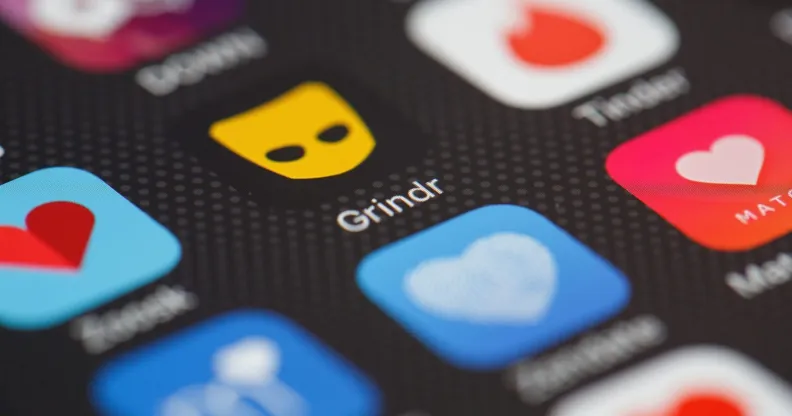Racial discrimination on gay and bi dating apps is rife, new study finds

LGBT+ dating app Grindr (CHRIS DELMAS/AFP/Getty)
Racial discrimination on gay and bi dating apps is extremely common and can present itself in a variety of ways, a new study has found.
The study – which is published in the American Journal of Community Psychology – takes an in-depth look at prior research into racialised sexual discrimination on dating apps.
The researchers found that race-based preferences are, as expected, most often expressed by white people on dating apps who work to exclude people of colour from their spaces.
They write that race-based partner selection has become “the new face of racism in online sexual and dating networks of gay/bisexual men.”
Racism can show itself in a variety of ways on dating apps for gay and bisexual men.
They also note that racialised sexual discrimination emerges in a variety of ways. Gay and bisexual men of colour can be rejected, objectified or denigrated on the basis of their race. Others perpetuate stereotypes about men of colour and make comments about their sexual prowess, sexual roles or physical attributes.
Ryan Wade and Gary W. Harper, who conducted the study, write that experiencing racial sexual discrimination on dating apps leads to feelings of shame, humiliation and inferioritiy. They said the experience can impact on the self-esteem and wellbeing of men of colour.
They have now developed a scale to measure racialised sexual discrimination that categorises experiences into four areas: exclusion, rejection, degradation and erotic objectification.
Participants discussed how being discriminated against by people of their own racial or ethnic group hurt in a unique way, so we wanted to account for that too when developing the scale.
Wade and Harper conducted focus groups to find out more about gay and bisexual men’s experiences of racialised sexual discrimination. They found that being discriminated against by people of their own race was also an issue.
“Participants discussed how being discriminated against by people of their own racial or ethnic group hurt in a unique way, so we wanted to account for that too when developing the scale,” Wade said.
They have collected data from 2,000 black gay and bisexual men aged 18-29 through social media about their experiences on dating apps. That study is currently being reviewed by another journal.
Racism on dating apps will not come as a surprise to many.
Dating apps have previously acknowledged racism on their platforms. In 2018, Grindr tried to enact change by launching its Kindr Grindr initiative, which gave queer people of colour a platform to discuss the issue and updated the app’s guidelines to clamp down on discrimination.
The app said that “anyone found bullying, threatening, or defaming another user will be banned.”
“We will also remove any discriminatory statements displayed on profiles,” it continued.
“You’re free to express your preferences, but we’d rather hear about what you’re into, not what you aren’t.
“Profile language that is used to openly discriminate against other users’ traits and characteristics will not be tolerated and will be subject to review by our moderation team.”

